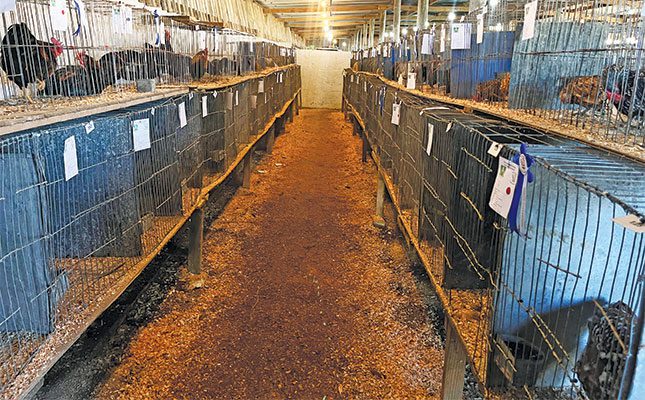Starting a poultry enterprise in South Africa can be an exciting opportunity for emerging farmers, but it comes with a complex set of legal, environmental, and operational challenges. With growing demand for poultry products and a market full of potential, understanding the rules of engagement is key to building a sustainable and compliant business.
Poultry nutritionist Dr Sipokazi Nyeleka, learnership and operations manager at Afrivet Training & Technical Services, has been at the forefront of educating and empowering small-scale and emerging poultry producers across the country. Speaking to Octavia Avesca Spandiel, she explained that one of the biggest barriers for new farmers is navigating the web of legislation that governs poultry production.
Legal frameworks based on scale
“Different legal considerations apply depending on your scale of production,” says Nyeleka. “Subsistence farmers won’t face the same legal scrutiny as someone actively scaling their business.” She encourages farmers to start by engaging their local Department of Agriculture office, which can serve as a central point of access to relevant regulatory authorities, such as the Department of Forestry, Fisheries and the Environment (DFFE).
Essential legislation poultry farmers must know:
- Animal Diseases Act (No. 5 of 1984): Requires disease awareness and reporting of notifiable diseases like avian influenza.
- Meat Safety Act (No. 40 of 2000): Governs the production and sale of safe meat.
- National Environmental Management Act (No. 107 of 1998): Ensures farms do not harm surrounding ecosystems or communities.
- Fertilizers, Farm Feeds, Agricultural Remedies and Stock Remedies Act (No. 36 of 1947): Applies if the farmer wants to manufacture their own poultry feed.
Read Also: Farmers Brace for Higher Fertiliser Prices This Summer
Read Also: Scientists Say Warming Climate Is Putting Bees at Risk
Key compliance considerations
Emerging farmers must obtain a water-use licence for operations requiring large water volumes and manage waste and wastewater to prevent environmental pollution. These environmental concerns are especially serious when it comes to farming in residential or mixed-use zones, where stricter zoning laws and operational constraints apply.
“Zoning laws aren’t uniform,” warns Nyeleka. “Even if land is zoned for agriculture, the farmer must still comply with building regulations, waste disposal rules, and biosecurity protocols.”
Transportation and feed licensing
Transporting birds to abattoirs or markets is another area requiring compliance. Improper transport affects meat quality and may violate meat safety regulations. Farmers also need a licence to produce their own feed, particularly when scaling operations.

Biosecurity: A legal and ethical duty
“Biosecurity is not optional,” Nyeleka stresses. The Animal Diseases Act mandates farmers to prevent disease outbreaks and control transmission. Failure to comply could result in fines, prosecution, or closure. Neighbouring farmers also have legal recourse if their operations are jeopardised by negligent practices.
Animal welfare and humane treatment
Poultry farming is bound by ethical and legal obligations concerning animal welfare. The Five Freedoms of Animal Welfare — freedom from hunger, discomfort, pain, fear, and the ability to express normal behaviour — serve as guidelines for humane treatment. “These birds aren’t just livestock,” Nyeleka says. “They are a food source for the nation, and their treatment reflects on the integrity of the entire industry.”
Housing, nutrition, and veterinary care
The housing and feeding needs of poultry vary by production type. Free-range birds require different housing than birds in environmentally controlled systems. Feeding programmes must be age-appropriate, and vaccination schedules need to be followed carefully.
“Each stage of the bird’s life has specific dietary and medicinal needs,” Nyeleka explains. Importantly, “it is unlawful not to treat birds when they are sick.”
The power of knowledge
While the legal landscape for poultry farming may seem intimidating, Nyeleka believes that knowledge is a powerful tool for building a responsible and profitable poultry business. “Compliance isn’t about paperwork. It’s about protecting public health, preserving the environment, and ensuring your business survives in the long run,” she says.
For emerging farmers ready to take on the challenge, help is available. “Your first stop should be the Department of Agriculture,” advises Nyeleka. “They can guide you through every step.”
For more information or guidance, email Dr Sipokazi Nyeleka at operationscoordinator.ats@afrivet.co.za.